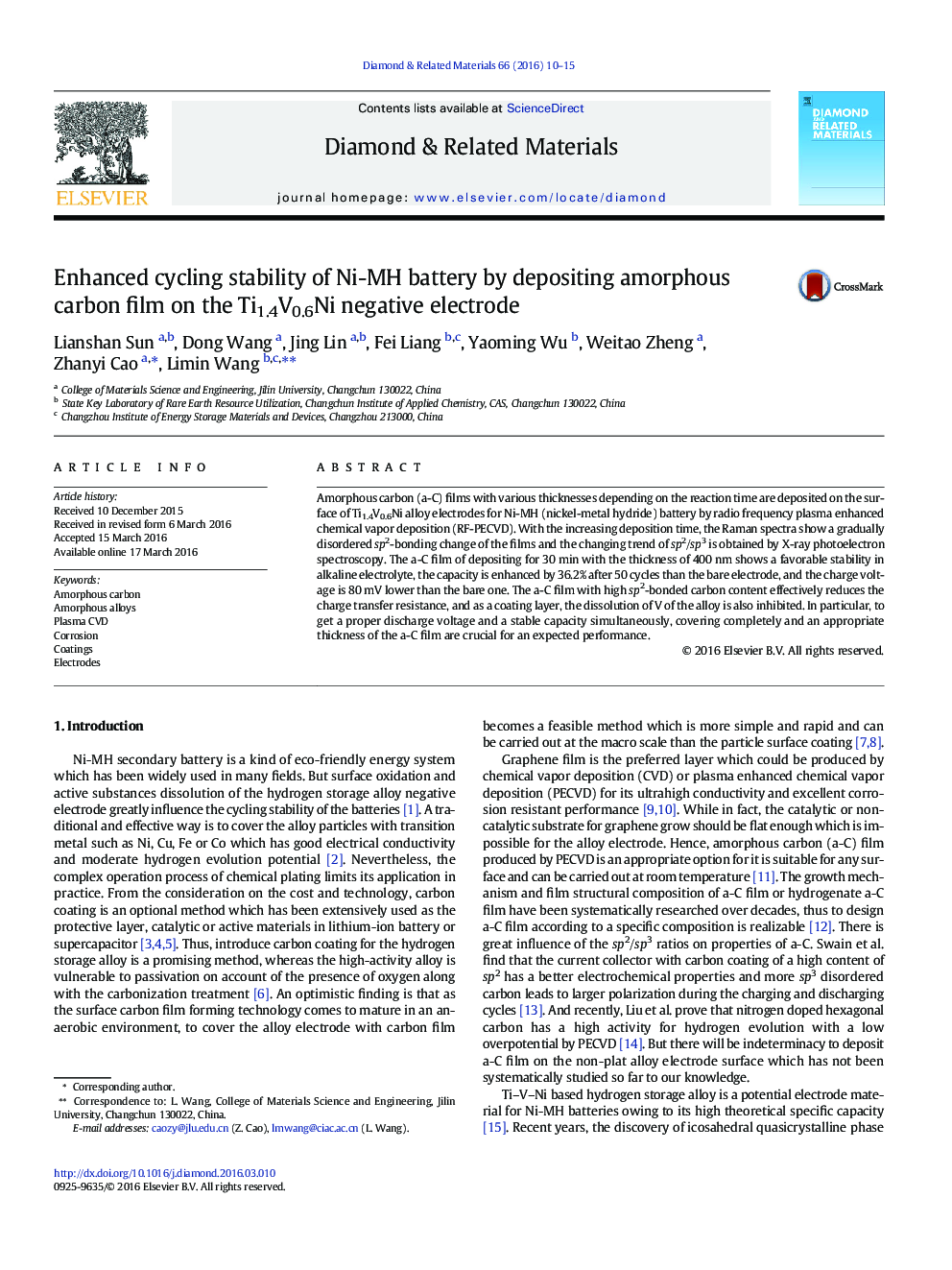| کد مقاله | کد نشریه | سال انتشار | مقاله انگلیسی | نسخه تمام متن |
|---|---|---|---|---|
| 701755 | 1460765 | 2016 | 6 صفحه PDF | دانلود رایگان |

• Amorphous carbon film is firstly introduced in a Ni-MH battery by PECVD.
• V dissolution and surface oxidation of the electrode is inhibited by a-C film.
• Properties of sp2 and sp3 hybrid carbon of the a-C films are discussed.
• Carbon layer exhibits an enhanced depolarization ability and conductivity.
Amorphous carbon (a-C) films with various thicknesses depending on the reaction time are deposited on the surface of Ti1.4V0.6Ni alloy electrodes for Ni-MH (nickel-metal hydride) battery by radio frequency plasma enhanced chemical vapor deposition (RF-PECVD). With the increasing deposition time, the Raman spectra show a gradually disordered sp2-bonding change of the films and the changing trend of sp2/sp3 is obtained by X-ray photoelectron spectroscopy. The a-C film of depositing for 30 min with the thickness of 400 nm shows a favorable stability in alkaline electrolyte, the capacity is enhanced by 36.2% after 50 cycles than the bare electrode, and the charge voltage is 80 mV lower than the bare one. The a-C film with high sp2-bonded carbon content effectively reduces the charge transfer resistance, and as a coating layer, the dissolution of V of the alloy is also inhibited. In particular, to get a proper discharge voltage and a stable capacity simultaneously, covering completely and an appropriate thickness of the a-C film are crucial for an expected performance.
Figure optionsDownload as PowerPoint slide
Journal: Diamond and Related Materials - Volume 66, June 2016, Pages 10–15